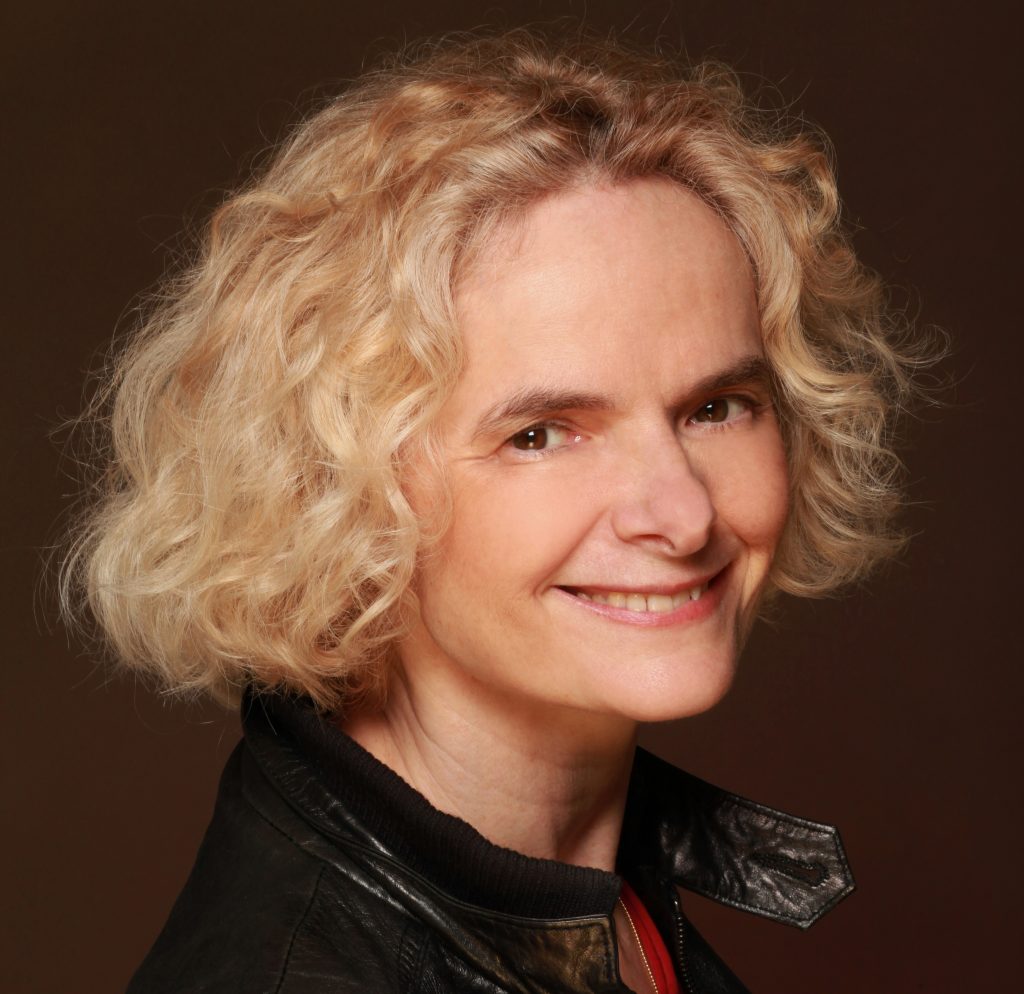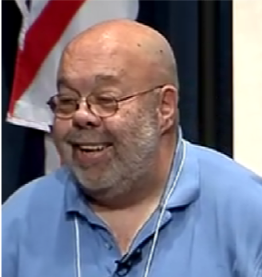
If AOD problems could be solved by physically unraveling the person-drug relationship, only physicians and nurses trained in the mechanics of detoxification would be needed to address these problems. If AOD problems were simply a symptom of untreated psychiatric illness, more psychiatrists, not addiction counselors would be needed. If these problems were only a reflection of grief, trauma, family disturbance, economic distress, or cultural oppression, we would need psychologists, social workers, vocational counselors, and social activists rather than addiction counselors. Historically, other professions conveyed to the addict that other problems were the source of addiction and their resolution was the pathway to recovery. Addiction counseling was built on the failure of this premise. The addiction counselor offered a distinctly different view: “All that you have been and will be flows from the problem of addiction and how you respond or fail to respond to it.”
Addiction counseling as a profession rests on the proposition that AOD problems reach a point of self-contained independence from their initiating roots and that direct knowledge of addiction, its specialized treatment and the processes of long-term recovery provide the most viable instrument for healing and wholeness. If these core understandings are ever lost, the essence of addiction counseling will have died even if the title and its institutional trappings survive. We must be cautious in our emulation of other helping professions. We must not forget that the failure of these professions to adequately understand and treat addiction constituted the germinating soil of addiction counseling as a specialized profession.
White, W. (2004). The historical essence of addiction counseling. Counselor, 5(3), 43-48.
It’s important to note that William White specifically refers to addiction counseling. (If he were writing this today, I imagine he might consider replacing “AOD problems” with “addiction” or “severe AOD problems.”)
I’m often asked why I believe it’s so important to understand addiction as a primary illness. It’s because professional helpers need to know that attempts to resolve addiction by addressing other problems are generally doomed to fail. We can house people with addiction, treat their trauma, treat their mental illness, give them supportive employment, legalize drugs, provide drug testing supplies, clean works, regulated supply, and guaranteed minimum income. Even with all of that support, they are still likely to die of untreated addiction.
Even when we effectively treat opioid use disorder, cocaine use disorder, or alcohol use disorder, we may still be setting the stage for them to suffer or die of untreated addiction. For example, a patient’s opioid use disorder may be effectively treated and the patient dies of causes related to their alcohol or stimulant use. Or, their impairment and it’s consequences persist due to misuse of co-prescribed benzos and stimulants.
This was Narcotics Anonymous’s breakthrough idea in the 1950s–that the problem should not be conceptualized as alcohol or heroin or cocaine, but addiction.
NA’s definition of the problem as a process of “addiction” that transcended one’s drug choice and required a common recovery process may be viewed by future historians as one of the great conceptual breakthroughs in the understanding and management of severe alcohol and other drug problems. This is all the more remarkable coming at a time that substance-specific disorders were still thought to be distinct from each other, as were their treatment and recovery processes.
Budnick C, Pickard B & White W. (2011). Narcotics Anonymous: Its History and Culture
To say that addiction is a primary disease and not caused by these other problems does not imply that these problems are unimportant, or that they have no relationship to addiction. These other problems may be secondary to addiction, or they may also be a co-occurring primary problem.
In either case, these problems may affect the risk for addiction, the onset, its course, severity, and response to treatment. They may represent a barrier to recovery. And, importantly, they cause suffering.
This is why addiction counseling as a specialty is so critically important. In most cases, recovery from addiction is not catalyzed by character development, mental health treatment, housing, or trauma treatment.

We saw a huge surge in alcohol misuse from the very earliest days of the COVID 19 pandemic. Americas most socially acceptable drug of misuse helped sooth a lot of rattled nerves. But, if one argument for normalizing drugs use stems from the belief that doing so will decease problematic use, we may not want to use alcohol as our poster child for success. Even before the pandemic, this National Institute on Alcohol Abuse and Alcoholism (NIAAA) article noted that between 1999 and 2017, we lost nearly one Million Americans to alcohol related deaths. One million human beings. It is a big number, but we tend to ignore these deaths as a nation. Alcohol misuse is stealing lives, right under our noses. Have we normalized these losses in ways we should not have? What, if anything are we going to stop these deaths?
Some of the early (and grim) stats on the pandemic and alcohol related deaths are starting to come in. A JAMA study found a 25.5% increase in alcohol related mortality during the pandemic. These deaths were steadily increasing prior to the pandemic. As it states, “drinking has been going up for 10 or 15 years among adults, and the trend accelerated in 2020, as some of the motivations to drink changed: Stress-related drinking increased and drinking due to boredom increased.” One researcher is quoted as hoping it may go down, but also acknowledges that this may be our “new normal.” Even as these deaths are burgeoning, we ignore them. We normalize these devastating losses. Why?
Alcohol has probably been one of the primary ways that people have numbed themselves through the trials and tribulations of the pandemic. This NBC article talks about the rise of “mommy juice” memes of women mixing Whiskey with their Sprite to get through the day and navigate multiple roles of childcare, work and every other responsibility. It is way more convenient to get wasted on alcohol than ever. Here in Pennsylvania, if you want some alcohol infused gelatin shots for the road, nearly every convenience store within ten miles of my home sells them now. These fruity concoctions and other similarly flavored alcohol related products that appeal to kids are everywhere. We should pay attention to the impact that they have on young developing brains wired for trying new things that Dr Judith Grisel talks about in her piece on the addiction trap. Early life use increase addiction over the lifecycle, but it is also market share for the companies that make these products. Perhaps that is one factor in why we are where we are at.
Like other medical conditions, recovery is easier earlier in the progression of the disease than in later stages. Yet, we largely ignore early cues associated with misuse when we see them. It is too uncomfortable for us to talk about, a direct impact of stigma. We generally allow the condition to worsen as it progresses while we work hard to look the other way. Yet, while alcohol use is acceptable, we don’t see alcoholism in the same light. When it gets to elephant sitting on the coffee table size of a problem, then we act. We act when people get arrested or are too impaired to hold down their jobs. We ignore what is visible in earlier stages until it is in its later, harder to treat phases. We do too little, too late.
We seem to now falsely view alcohol as less lethal for addicted persons than it truly is. This may be partially because we have had our eyes focused on the very real devastation stemming from the opioid epidemic, which also benefited big pharma companies so we looked the other way on that one for years, too. I hear of people getting life sustaining meds for an opioid disorder even as their severe alcohol use disorder is ignored. Preventing an overdose is laudable, but it is a waypoint, not an end goal, particularly for those of us experiencing other, largely unaddressed addictions.
We should consider what flourishing looks like for our patients and help them get there. Ask what you would want for your own mother or father, brother or sister, son or daughter, and that is what every person should get in respect to SUD care. We don’t deliver anything close to that. We should be doing some soul searching as to why we do not do so.
I have observed access to treatment barriers for alcohol use disorders because persons with Opioid Use Disorders (OUD) were prioritized for care. We ask about OUD at the door because there is funding to help persons with that disorder. Single diagnosis funding for an increasingly multi-use disorder! Can you imagine if we only treated one or two forms of co-occurring cancer? That would be morally wrong. If it is wrong for other conditions, why do we do it for addiction?
That programs end up having to triage care based on which substance they have funding is part of a larger problem. We are simultaneously plugging and drilling holes in the bottom of our proverbial boat. Addiction kills, recovery saves lives. Every addicted person deserves recovery, no matter which or how many substances they used. Every life, every time. Instead, we look the other way or ask why they chose to do this to themselves even as the science tells us it simply does not work this way. We do so because we still see addiction, including to alcohol as a moral failing. Sad but true.
I would be the first to admit in active addiction (including to alcohol) I posed a significant public safety risk. The unvarnished truth is that getting people like me into recovery can save a lot more lives than our own. There is a public safety imperative to support recovery. This week, here in Pennsylvania a young and intoxicated driver ran over and killed two state troopers and a citizen. We are rightfully flying state flags at half-mast for them. A tragic accident, but certainly not an isolated event. The 2020 National Highway Traffic Safety Administration report shows that alcohol impaired driving increased 29% over 2019, while alcohol related highway fatalities increased by 24%. This recent New York Times article notes the 25% jump in overall alcohol mortality and speculates that some of it may be related to increased resumption of use rates in recovering people. We had opportunities to more fully address these challenges and we did not do so. Why are we not doing more to get people into recovery simply as a matter of public safety?
When we do fund solutions, we ignore perhaps one of the most effective ones we have in front of us. We don’t fund recovery. We know that recovery is the solution, yet few resources get to the ground. Had we gotten resources to the recovery community pre-pandemic, I suspect it would have offered some protective benefits and helped reduce the SUD resumption rate. In hindsight, it would have been a penny on the dollars return on investment. Yet despite unprecedented funding from Congress to the states, many of our grassroots recovery community organizations still self-fund through bake sales and social media campaigns as we recently noted in a Stat News article coauthored with Ryan Hampton. Why? Recovery is in many cases the last in line for funding because we are still a stigmatized community.
What could we do to turn around the alarming increase in alcohol related mortality in America:
- Stop Looking the Other Way: Denial and avoidance does not work with addiction. It never has. We must face what is occurring and more fully address these issues in our communities. We must do so from a strength based, recovery orientation rather than the punitive focus we have for so long held in this country.
- Address the Subtle Dynamics of Stigma: To better address addiction, including to alcohol, we must normalize recovery. We have not learned how to talk about problematic alcohol use and to discuss it as a society. On some fundamental level see people who end up with a severe substance use disorder as having a character flaw or as morally compromised. We are still largely perceived as outcasts, an unclean caste. When people can live openly in recovery, it will be a lot easier to talk about addiction in a proactive way. Based on the national survey my organization did with RIWI and Elevyst, we have a long way to go until we reach that goal. There is no better time to focus on changing this sad fact than right now. We are not unclean; we are pillars of hope in our communities.
- Fund Recovery Community Organizations: Recovery Community Organizations (RCO) were conceptualized to wrap people in communities of healing. Recovery capital generators in our communities. Focused on getting us into and to sustain our recovery over the long term. Designed to support us getting back to work, taking care of our families and to be civically engaged contributors to our communities. The best possible outcome, people who are productive and contribute to our communities instead of destroying them. It is a common outcome. Let’s fund recovery to save lives!
- Focus on Early Interventions: Alcohol use disorders are killing us. We must address them earlier in the disease process while understanding that unaddressed addiction is public health and safety issues for our entire society.
- Increase Peer Mentoring Roles: We need to elevate lived experience within and across all of our social and governmental institutions. Visible examples of people in recovery serves up hope to those still struggling. It can open us up as a society to the difficult and life saving conversations we must have if we are to save more lives. We see effective models in our professionals in recovery organizations for lawyers and doctors. An early intervention may look a lot like a friendly conversation of concern from a colleague, opening the door to recovery. We should see these across all our employers and institutions, but we must form and fund them if we want this outcome.
Rarely in recent years have we even talked about the steadily increasing deaths from alcohol. Instead, we normalized them. Those losses were overshadowed by the opioid epidemic. One million dead from alcohol related mortality in the years immediately preceding the pandemic. Now it is 25% higher in the blink of an eye. Is it enough for us to pay attention to what is happening? We have improperly normalized the deaths of our fellow humans. We do so because we still do not see people who are addicted to even our most socially acceptable drug as people worthy of helping. If we did, we would have a fully funded system of SUD care that included RCOs and long term, recovery-oriented outcomes. We do not have that in America. We can have that if we decided to do so. When will we? What will it take to do so?
Problematic alcohol use is happening right under our nose, and the consequences are increasing even as solutions are under our noses. Yet even now, very little changes. How many more million loved ones must we lose before we focus resources on recovery using whatever pathways of recovery work for each person? The solutions may be difficult, but not nearly painful as normalizing the lost of hundreds of thousands more of our loved ones to alcohol use disorder.
The answer, which is investing in recovery. It is about time we do that.

Ted Perkins, aka the “Tips & Tools Guy” is a SMART facilitator and producer of our popular SMART Recovery video series including Tips & Tools for Recovery That Works, Life Beyond Addiction, Facilitator Spotlights, and more. A natural skeptic and avid humanist, he has always been open to ways to better himself, especially in his recovery. One way in which he’s done this is looking into the possible therapeutic value of psychedelic drugs. In this podcast he openly shares some of his experiences with people so they can understand the powerful impact they made in his life.
In this podcast, Ted talks about:
- How alcohol was normalized growing up in other countries
- His path from college to the entertainment industry being full of parties and substances
- Realizing he was living a suboptimal life because of alcohol
- Finding SMART and becoming a facilitator
- Trying LSD in the 1980’s and integrating the experience into his ongoing relationships
- Trying to be the best Ted he can be
- Learning about the popularity of psychedelics to aid in recovery
- His experience at a psychedelic summer camp in Costa Rica
- Being treated with Ketamine by his therapist
- The connection between his psychedelic experience and using SMART
- Getting what you need, not what you want
- Having a deeper emotional connection to the people in his life
Additional resources:
Click here to find all of SMART Recovery’s podcasts
PLEASE NOTE BEFORE YOU COMMENT:
SMART Recovery welcomes comments on our blog posts—we enjoy hearing from you! In the interest of maintaining a respectful and safe community atmosphere, we ask that you adhere to the following guidelines when making or responding to others’ comments, regardless of your point of view. Thank you.
- Be kind in tone and intent.
- Be respectful in how you respond to opinions that are different than your own.
- Be brief and limit your comment to a maximum of 500 words.
- Be careful not to mention specific drug names.
- Be succinct in your descriptions, graphic details are not necessary.
- Be focused on the content of the blog post itself.
If you are interested in addiction recovery support, we encourage you to visit the SMART Recovery website.
IMPORTANT NOTE:
If you or someone you love is in great distress and considering self-harm, please call 911 for immediate help, or reach out to The National Suicide Prevention Hotline @ 800-273-8255, https://suicidepreventionlifeline.org/
We look forward to you joining the conversation!
*SMART Recovery reserves the right to not publish comments we consider outside our guidelines.*
Subscribe To Our Blog
Join our mailing list to receive the latest news and updates from the SMART Recovery Blog.
You have Successfully Subscribed!
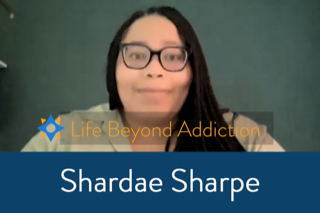
Shardae Sharpe started college at 15 years old. Not having parental control and mental maturity, she began drinking alcohol. Her substance use continued all while she was struggling with school and relationship issues. Her path to recovery didn’t start with SMART, but through her job at Sober Grid, she has learned the program and is now taking the facilitator training course.
Subscribe to the SMART Recovery YouTube Channel
Video storytelling is a powerful tool in recovery, and we are proud to share our SMART Recovery content free-of-charge, available anywhere, on any device. Our videos hope to inform, entertain, and inspire anyone in the recovery community.
Subscribe to our YouTube channel and be notified every time we release a new video.
PLEASE NOTE BEFORE YOU COMMENT:
SMART Recovery welcomes comments on our blog posts—we enjoy hearing from you! In the interest of maintaining a respectful and safe community atmosphere, we ask that you adhere to the following guidelines when making or responding to others’ comments, regardless of your point of view. Thank you.
- Be kind in tone and intent.
- Be respectful in how you respond to opinions that are different than your own.
- Be brief and limit your comment to a maximum of 500 words.
- Be careful not to mention specific drug names.
- Be succinct in your descriptions, graphic details are not necessary.
- Be focused on the content of the blog post itself.
If you are interested in addiction recovery support, we encourage you to visit the SMART Recovery website.
IMPORTANT NOTE:
If you or someone you love is in great distress and considering self-harm, please call 911 for immediate help, or reach out to The National Suicide Prevention Hotline @ 800-273-8255, https://suicidepreventionlifeline.org/
We look forward to you joining the conversation!
*SMART Recovery reserves the right to not publish comments we consider outside our guidelines.*
Subscribe To Our Blog
Join our mailing list to receive the latest news and updates from the SMART Recovery Blog.
You have Successfully Subscribed!
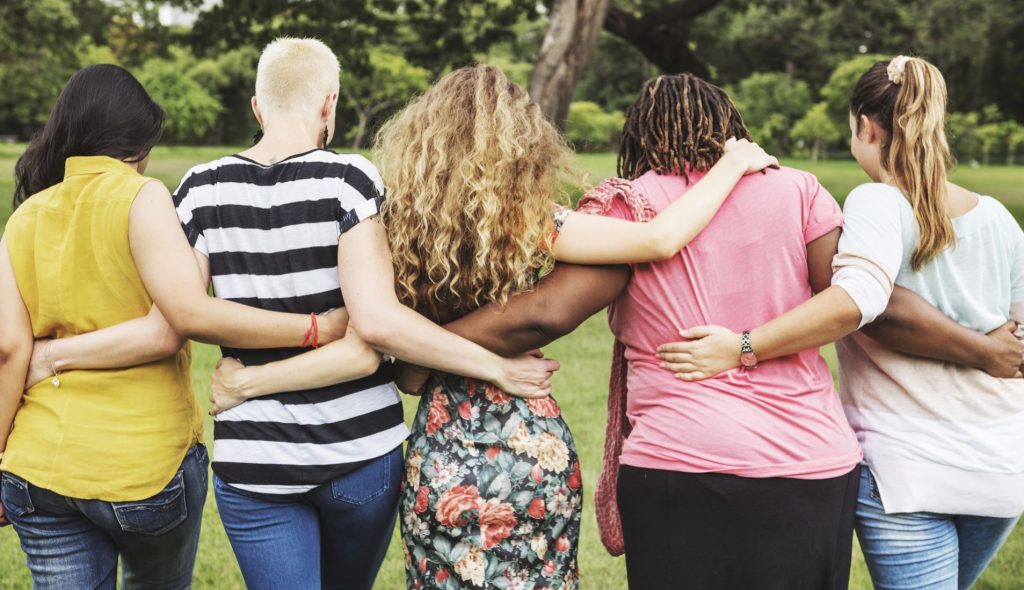
Loretta Billingsley has been working in the media industry since the 1980’s and still loves what she does to this day. Another thing she loves is facilitating the SMART Women’s meeting on Saturday mornings. Loretta knows the personal growth and connections formed during those meetings have helped change lives, and for that she is grateful.
In this podcast, Loretta talks about:
- Being one of the pioneer women who started the women’s meeting
- Why the meeting has grown in popularity in the last year
- Notable guest speakers from the recovery community
- Her four levels of collective sharing
- Why inclusivity needed to be a part of the SMART community
- How we’re all recovering from something
- Humanity being the great connector
- Using practices instead of tools
- The journey down a new road of recovery
Additional resources:
Click here to find all of SMART Recovery’s podcasts
PLEASE NOTE BEFORE YOU COMMENT:
SMART Recovery welcomes comments on our blog posts—we enjoy hearing from you! In the interest of maintaining a respectful and safe community atmosphere, we ask that you adhere to the following guidelines when making or responding to others’ comments, regardless of your point of view. Thank you.
- Be kind in tone and intent.
- Be respectful in how you respond to opinions that are different than your own.
- Be brief and limit your comment to a maximum of 500 words.
- Be careful not to mention specific drug names.
- Be succinct in your descriptions, graphic details are not necessary.
- Be focused on the content of the blog post itself.
If you are interested in addiction recovery support, we encourage you to visit the SMART Recovery website.
IMPORTANT NOTE:
If you or someone you love is in great distress and considering self-harm, please call 911 for immediate help, or reach out to The National Suicide Prevention Hotline @ 800-273-8255, https://suicidepreventionlifeline.org/
We look forward to you joining the conversation!
*SMART Recovery reserves the right to not publish comments we consider outside our guidelines.*
Subscribe To Our Blog
Join our mailing list to receive the latest news and updates from the SMART Recovery Blog.
You have Successfully Subscribed!
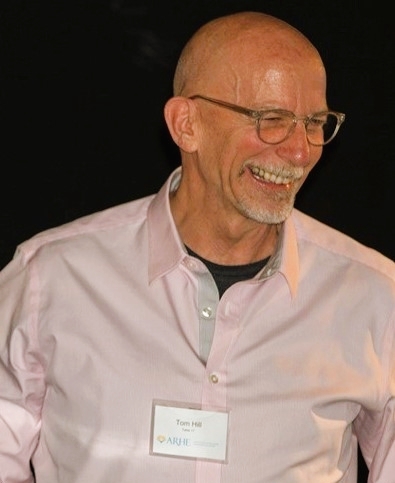
Forward – I recently learned that Tom Hill was retiring from government work and concentrating on his art, another one of his many talents. My first reaction was a feeling of abandonment. We tend to see some people and the roles that they serve almost as permanent fixtures. Tom Hill has been that kind of fixture in the recovery community. If Bill White is our navigator, the Switzerland of neutrality and protector of our common ground, Tom Hill is our rudder. He has always had his pulse on the community. A lot of people, present company included, have depended on Tom for his wise counsel and a whole lot of insight on our shared values and what to do to stay on course and keep our ship afloat.
I am working on a side project to explore how people in recovery serving in government are able to navigate these difficult waters and do it in ways that remain true to themselves and our community. The idea for the project came out of a conversation I had a few months ago with Bill White. Getting this interview was vital for what I want to accomplish. Tom was kind enough to set down his palette and brush and talk with me for an hour.
It now occurs to me that there is more than one way to lead. Tom is stepping away from his formal recovery community role to be true to himself. Showing us the way forward, practicing self-care and following his path of growth. As this interview reflects, one of the lessons in recovery is to keep your feet on the ground and to take that next step. Tom is practicing what he preaches. As the feeling of abandonment faded, it was replaced with deep respect and a sense of awe for how recovery unfolds in our lives and the power of letting ourselves flow in that current. Thank you, Tom!
Tom Hill retried last month from his position as senior policy advisor at the White House Office of National Drug Control Policy (ONDCP). Prior to that position, he served as the Vice President of Practice Improvement for the National Council and a Presidential Appointee in the position of Senior Advisor on Addiction and Recovery to the SAMHSA Administrator. At one point, he served as Acting Director of the Center for Substance Abuse Treatment. He also helped PRO-A, our statewide RCO here in Pennsylvania to adopt our current organizational framework. Tom has also used his role in the policy realm to develop recovery-oriented systems of care and support efforts to get more people into long term recovery. He is humble and hardworking. Tom is the recipient of numerous awards, including the Johnson Institute America Honors Recovery Award, the NALGAP Advocacy Award and a Robert Wood Johnson Fellowship in the Developing Leadership in Reducing Substance Abuse initiative.
I only ask of Tom that he lets us know of his next galley opening. I want to see what he is putting on his canvas in this new chapter. I know I am not the only one who wants to celebrate what comes next!
- Thinking back to your early days of recovery, what or whom influenced the values around recovery that shaped who you were and what you have accomplished?
I want to start by noting that my career was not a planned path, it was the one that was revealed to me over time. When I think back to those early days of recovery, it is important to note that everything about recovery went against all I had learned about how to get ahead in the world. I grew up in DC. I was taught to be tough, to always be in control, not to ask for help and that to be kind was to be weak. A lot of the business world and even government runs this way as well. Recovery introduced me to an alien world that ran counter to how I lived up to that point. This new way changed my life. This new way saved my life.
One of the important things to understand is that I never set down a plan to have a career centered on recovery or to work inside government. What happened for me was more of an organic process. I worked on the issues that had meaning to me and the rest simply unfolded. The values I learned in early recovery were foundational in both my personal life and my professional work. The values of recovery were things I had to slowly open up to. They really changed my whole world. To be able to let go of control and trust the process. To strive to be honest, to live with integrity, to have a purpose greater than oneself. The foundation of love and kindness…were not who I was before I got into recovery. I had lived contrary to these values.
I had a good sponsor, and I was in therapy. I did not have any idea of what trauma was. I remember hearing about Adverse Childhood Experiences (ACEs) and realizing I had a high score. I learned what all that was about. It made a lot of what happened in my life and how I responded to things make sense. Understanding “the why” helped, as I have matured, the why is less important now, but at the time it really helped me understand a whole lot. I began to heal.
In reflection, I think my recovery foundation really did shape me. When I think of these values, the very values that shaped so many of us, they are seen as pretty radical out in the rest of the world. Most institutions do not work under such values. We can end up in conflict fairly easily with systems that do not operate in the way we learn to do to sustain our recovery. It can be a real struggle to stay true to these values out in the world.
- You were part of the first cohort of the Recovery Community Support Project (RCSP) through SAMSHA, the first time that recovery community organizations were funded in America. What influence did that process have on you and the work you have been involved with over the last two decades?
I think back to those early RCSP days, and it was really a miracle that this group of people came together. There were so many amazing people in the first and second cohort. It was really incredible when you think about it. SAMHSA Grant officer Cathy Nugent and June Gertig, Project Director for the RCSP Technical Assistance Project helped focus us in ways that focused our work. One of the most remarkable things was that they had a deep understanding of the power of community. Valuing community is fundamental to developing effective strategies, but often times our institutions approach things from a top-down approach, not including communities in solutions at all, or only in pro forma way.
Community needs to be central player in change strategies, but it often ends up as window dressing as other “legitimate” institutional goals are pursued. If you really want to help a community, you provide it with the resources and support it needs to solve its own problems. That is what works and what government repeatedly fails at. Agendas are rolled out and conducted in ways that far too often fail to harness the power of community by engaging it in its own healing process. Top-down approaches tokenize the recovery community, with the message that people, families, and communities are not capable of finding their own solutions. Communities from all around have proved this wrong. The recovery community has proved it wrong in capital letters.
The Recovery Community Support Program is an excellent example of one of those rare instances in which government valued “community up” solutions. What a miracle was that – the right people were in the room. The cohort included people like Don Coyhis, Phil Valentine, Joe Powell, Bev Haberle and Dona Dmitrovic. You had grant officers who understood how community up problem-solving works and you had this amazing group of people assembled from across the country who all came together. This SAMSHA project that was really run on a shoestring budget, it sort of bumped along. But it had its champions, like Dr H. Westley Clark CSAT Director and Rick Sampson, the Director of the Division where the RCSP was housed. Without their support it would not have achieved what it did.
The back story was that when the project was conceived, there was a sense that SAMHSA would facilitate this project, people and organizations would be developed and the focus would be to remove barriers to treatment. This was in the era when recovery month was focused on Treatment Works! as a slogan. The thing was, when all these people came together, it was realized that this is not what our communities wanted to do. There were such varied pathways to recovery, many included treatment, many did not. The cohort wanted to focus on strengthening recovery. The miracle was that, by listening to the reports from community leaders, the government started trusting and valuing the lived experience and wisdom of the recovery community. At the end of the day, that is the miracle that gave the recovery community a foothold in government.
- You have had quite an impressive career in government. You were one of the highest government officials openly in recovery. How have you navigated the values of recovery representation in these positions?
As we have talked about, I never had a master plan to do this. I honestly think I was called to this work, as I think you and many of us have been. Occasionally, messengers show up and give us a nudge. The truth is that when I was initially asked a few of years back if I wanted to pursue an available position within government, I said no. I couldn’t really picture myself in that role. Working for a government contractor doing technical assistance, I felt that I had more freedom working directly with the recovery community.
After I said no, the agency official came to me again and asked if I would consider a time-limited role, as a political appointee. I certainly saw that there was potential for me to further some of objectives of the recovery movement, alongside my friend and colleague, Tom Coderre, who was already serving. I got on the phone and ran the idea by many of my colleagues and decided that I could not afford to turn down the offer. The idea was very compelling, I ended up saying yes, not once but twice. So, I ended up in government.
Earlier I spoke about how the priorities of government and the values of recovery can come in conflict. It can make the work difficult, and I believe that it is beyond helpful to have a program of recovery to navigate these conflicts. Without that, I know I would lose their way quickly. Government works at its own speed. You often do not know how well you are carrying the water because everything is so heavily steeped in politics and frequent changes are constant. “Keeping it simple” can seem impossible in an arena of complicated decision-making and a variety of changing factors. Because government moves very slowly, working to make sustainable policy and systems change takes both short-term and long-term strategies, along with a whole lot of patience and stamina. Seeing a project gain momentum and then sputter can be disheartening, requiring us to keep our determination fixed on the end goal, which may take substantial time to realize.
For me, it has been important to stay rooted in recovery values in all the places I have worked and especially in government. At the end of the workday, I have to ask myself questions like: was I honest, was I fair, did I listen well, did I do what I said I was going to do, was I kind to everyone – things like that. These questions can be especially difficult in work environments that are not designed to uphold recovery values.
Despite all the challenges, the role can be rewarding. I have been able to open doors and invite diverse representatives of the recovery community to important meetings where expertise informs critical decision-making. Getting the right people – and the right combination of people – to the table is an art that requires intention and follow-through. And including people with lived experience as experts has been a game-changer. Demonstrating this can be as simple as setting up a workgroup participation list that omits credentials behind people’s names. Oh, this can really ruffle feathers. We know that people work hard for their PhD and other degrees but eliminating academic credentials is a way of leveling the playing field. It communicates that everyone comes to the table with equal value, no matter who they are or how they got there.
Being open about your recovery while working in government can still be difficult. There is a lot of stigma and implicit bias. Sometimes you can see it, sometimes you can feel it. Our professional language is still peppered with thoughts and assumptions that are stigmatizing and outdated. Even as the concept of recovery has gained traction in the government, attitudes from colleagues can come off as unrealistic or not fully developed and are often overly romanticized and patronizing. Because much of this happens in a work environment in which people are afraid to ask what they don’t know, I have often taken the responsibility to correct, inform, and educate.
We need people who have the skills and aptitude to take up service within government. Everything we do takes sustained effort. Look at what we have done over the past twenty years. Recovery voices are now for the most part included. There is increased awareness of harm reduction pathways. We have made progress with recovery support services, despite our concerns about areas where their authenticity and community-centeredness is compromised. Our world is better off because of our efforts. It is far from perfect, we never get 100% of what we want, but we stay at it. We stay the course. We need people in recovery who have strong recovery values and who can balance out all these challenges and stay focused on our shared goals to serve in this way.
- What would you tell young people in recovery who may be considering working within government to strengthen recovery efforts?
The recovery community and government each have cultures that often clash. To work effectively in this space as a person in recovery requires skill in working cross culturally – to find common ground and build bridges. Not everyone can do this. It is important to learn how to work like a bureaucrat without becoming one. It is easy to fall into this trap and become the barrier instead of breaking it down. Bureaucracy is a very powerful force, and it can overwhelm even the most well-intentioned advocates. This is why staying true to our values and practicing self-care is so important for those of us working in this space. If you are not careful, you can find yourself being part of the problem before you realize what has happened.
It can be so easy to lose your way if your own self-care does not come first. If you are not grounded in recovery, you can easily get lost in government. The first important consideration is to have a uncompromised practice of self-care. The second is to work government in ways that serve our community and not to end up being worked by the government.
- What are the most important values that recovering persons serving in government should consider to shape policy and strengthening recovery efforts at the state or national level?
Back in the first question, we were talking about how radical the values of the recovery community can seem to those in the larger world. So many of us in recovery value shared decision making, diversity, fairness, shared power and consensus. These ways can run contrary to the machinery of government. It can be really frustrating when you know that these values will get the best yield, but other people don’t trust or believe it. At times it feels like we are making no progress, and even that things are going backwards. The key is to stay true to those values. This is how we make incremental change. Sometimes our influence is very subtle but will take hold over time if we are persistent.
It is especially important to stay true to these values while operating in a political environment. I think many of us who have chosen this path can struggle with the political facets. It can take a lot of energy to stay true to our values while operating in the unforgiving and the sometimes-mean-spirited environment of politics. I mentioned I grew up in DC, and then moved to New York. New Yorkers are very direct people and you usually know where you stand with them. In the world of government and politics, things are more indirect: you have to read and talk between the lines. There are times when people may seem to be throwing up roadblocks when they are actually trying to help you behind the scenes. Other times, an initiative will have full support and gain momentum, only to be pulled in the final hour. The bottom line is to not become disheartened and to be as sincere as possible and authentic to yourself and the movement. It is very easy to be corrupted by power – act with integrity and don’t take yourself too seriously.
- Looking back on your career, what are you most proud of accomplishing?
The recovery movement – including recovery-oriented systems of care and peer recovery support services – is on the map in ways we have never been before. I am honored to have played a part in making that happen. It is true that we have a long way to go. You and I have spoken about a number of the problems in the way that peer services are being conceptualized and implemented. In many cases, the community elements of peer work are being undermined in favor of a much simpler and less effective annexation to the workforce. There are a lot of mistakes being made that the next generation are going to need to clean up. Yet it is also true we have people in recovery working within our care systems in roles that are based on their lived experience. This is a huge accomplishment and must be carefully guarded so that the lived experience of recovery remains key.
Systems change is hard and complicated work. Most systems are designed to self-perpetuate and create stasis to sustain its equilibrium, even when that balance is unhealthy. Let’s not forget the initial – an in some cases, ongoing – resistance to implementing a recovery-orientation and the inclusion of people with lived experience. How many years has it taken just to have these conversations out in the open? And yet there are numerous examples of federal, state, and county recovery-oriented initiatives that are promising. So, yes, our efforts have been worthy, and I have hope that the recovery community will continue to point to True North. In this regard, the next generation will achieve remarkable things if they stick to recovery values, carry forth our community goals and work to navigate these difficult waters in order to continue to expand recovery opportunities for thousands of Americans.
So over 20 years ago, a few people were bold enough to talk about highlighting recovery in a whole new way and dared to dream that the recovery community could make some positive changes in helping more people access recovery. The fundamental power of recovery is that one individual helps another, and by doing so helps heal themselves. This basic concept is one of the most powerful forces on earth. This spiritual principle is ultimately what will heal our communities, and this is the philosophy that peer support is built upon. If peer workers are not anchored in this, then it will never begin to approximate authentic peer practice. This is what so many people still don’t get: that recovery is a radical transformative process that redirects the life energy of people, families, and entire communities.
- I know that in retirement, you are focusing on your art. Art is often about advocacy. How do you see these things come together in your next chapter of life? Is your advocacy for the recovery community and LGBT community going to show up in your art?
I’ve been fortunate to live a really full life and retirement is simply a new chapter. What is essentially means is that I am liberated from having to earn a wage. A friend of mine refers to it as “going rogue.”
Except for a brief period when I was in graduate school and then started my career as a social worker and community organizer, I have always practiced my art and used it to express myself through my recovery process. My advocacy work and my art have always been connected, they come from the same place in me. One of the things I have learned as I have grown older is to stop trying to force things, to trust the process and let the universe direct the traffic. In the past, I may have focused more on the details. Now, it is about the flow. My art, my queerness and my recovery are all inseparable parts of me that focus on being authentic in the world. For me, the gift of recovery has really been about self-forgiveness, self-acceptance, and letting go of how I am perceived. I am excited about the work I am doing in the studio right now because it is about me looking the world directly in the eye and taking my place in it, without embarrassment and without apology. At least, that is the goal!
I feel good about my decision to retire. I stepped aside from a career as an artist when I answered a call to do this recovery work. After considerable prayer and meditation, I became confident that the call has shifted. Time to step aside, let others take the helm, and get back into a routine of studio practice. So I feel really confident that I got the timing right on this. And leaving a gig at the White House ain’t a bad way to cap off your career!
I have never been very good at beginnings, middles, and ends, but I am working on creating boundaries. I have also not been so good at saying “No,” either because I did not want to disappoint people or I was afraid that I would miss out on fun and opportunities. So, when asked if my work in this recovery movement stuff is over, my answer has been, “For now.” I have learned that nothing is set in stone and you never know what is around the corner.
Since my last day of work in February, I have been in the studio every day, setting up new routines and practice, and being there makes me really happy. I love having the time, space, and resources to see this new work evolve. And to answer your question, yes, there are definitely threads of social justice coursing through this work, and because I am representing no one but myself, I feel free to create work without constraint, making it as irreverent, humorous, and unrestrained as it needs to be. After years of diplomacy, it feels really liberating to unleash a set of unfiltered truths.
In closing, I’d like to remind everyone that this phase of the recovery movement began with just a few people talking about how to realize the power of the recovery community in more universal ways. It took some time for this conversation to evolve and for others to feel a part of it. Over time the spark ignited into a small flame which became a bonfire. We have yet to set the world on fire, but it is, without a doubt, coming.
The next generation has grabbed the torch and is adding new ideas and elements that are deepening the discussion, asking questions about race and inequity, arrest and incarceration, and the tensions between abstinence and harm reduction approaches. Through this exciting work and change, vigilance needs to be the watchword, along with the knowledge that we can’t give what we don’t have. We need to keep close guard on our recovery values and ensure that they are never compromised by and through our work with others. Finally, we need to keep the fitness of our recovery fresh and vital. In all the work we do in recovery advocacy and systems change, our daily spiritual practice is our most powerful tool and the compass that directs us to True North.
SMART Recovery is pleased to announce that Nora Volkow, MD will be the inaugural speaker for the new Jonathan von Breton Memorial Lecture Series, a new quarterly event featuring leaders in the recovery community.
Advancing Pragmatic Approaches to Addiction Treatment and Recovery
Wednesday, April 6th at 4:00 p.m. ET
Dr. Volkow is Director of the National Institute on Drug Abuse (NIDA) at the National Institutes of Health. NIDA is the world’s largest funder of research on the health aspects of drug use and addiction. A pioneer in using brain imagery to counter myths that drug use was a moral failing, Volkow recently made a splash with an article in Health Affairs titled “Making Addiction Treatment More Realistic and Pragmatic: The Perfect Should Not Be the Enemy of the Good.” We expect her lecture to build on the themes in that article.
The Zoom event is free with registration.
Registration closes April 3rd at 11:59 p.m. ET.
The Zoom link will be emailed the week of the event.
Jonathan von Breton, CCMHC, was a longtime SMART Recovery volunteer who played a pivotal role in supporting the growth and development of the organization’s SROL online community. A Certified Clinical Mental Health Counselor, von Breton studied REBT under Albert Ellis, and was a champion of both REBT and SMART Recovery until his death after a long illness in September 2020. In 2021, the SMART Recovery USA Board of Directors established a new lecture series to recognize the significant contributions he made to the organization over more than 20 years. This lecture is the first in that series.
SMART Recovery offers effective mutual support with a self-empowering focus for those struggling with addictive behaviors, through a network of online and local in-person meetings. SMART Recovery meetings are positive, secular, and informed by empirically-based treatment methods.
PLEASE NOTE BEFORE YOU COMMENT:
SMART Recovery welcomes comments on our blog posts—we enjoy hearing from you! In the interest of maintaining a respectful and safe community atmosphere, we ask that you adhere to the following guidelines when making or responding to others’ comments, regardless of your point of view. Thank you.
- Be kind in tone and intent.
- Be respectful in how you respond to opinions that are different than your own.
- Be brief and limit your comment to a maximum of 500 words.
- Be careful not to mention specific drug names.
- Be succinct in your descriptions, graphic details are not necessary.
- Be focused on the content of the blog post itself.
If you are interested in addiction recovery support, we encourage you to visit the SMART Recovery website.
IMPORTANT NOTE:
If you or someone you love is in great distress and considering self-harm, please call 911 for immediate help, or reach out to The National Suicide Prevention Hotline @800-273-8255, https://suicidepreventionlifeline.org/
We look forward to you joining the conversation!
*SMART Recovery reserves the right to not publish comments we consider outside our guidelines.*
Subscribe To Our Blog
Join our mailing list to receive the latest news and updates from the SMART Recovery Blog.
You have Successfully Subscribed!
It’s not uncommon in today’s medical field to go to your family practitioner for a problem only to leave with a referral to visit a specialist rather than solve the problem right then and there. Let’s consider the value of referrals, especially when it comes to finding the best treatment program for alcohol or drug addiction.
Fellowship Hall has been providing an effective alcohol and drug treatment program for 50 years. Our program has been effective because we take the time to consult with each potential guest to discern the best possible treatment option for that individual. We receive referrals from other counselors, doctors, and other treatment centers who trust us to provide the best possible care to those who are referred. Likewise, we refer guests out to other centers and counselors we trust to provide the highest quality care for the individual, based on their specific needs.
Every individual is unique and often, there’s a complicated back-story related to substance use. Fellowship Hall works with each potential guest to determine the absolute best treatment for them – and sometimes, that means referring the individual to another treatment program that is better equipped to meet their needs.
Being referred to another treatment provider can be frustrating, particularly when you’ve done your research and selected the treatment program that you believe is the best option for you.
At Fellowship Hall, our goal is to help our guests achieve the best, most effective level of care that fits their specific needs – sometimes that means we must refer someone to another treatment center. Sometimes that means that someone is referred to Fellowship Hal from another treatment center. Referrals are an integral part of connecting individuals to effective treatment.
Why refer to a different provider? At Fellowship Hall, the most common reasons for referring an individual to another treatment facility are related to medical or behavior conditions, such as:
- The need for specialized medical care for conditions that Fellowship Hall is not equipped to treat
- Psychological conditions (eating disorder, active self-harm, etc.) which indicate the need for 24-hour monitoring
- Inability to actively participate in our treatment program due to mobility, language barriers, or other traditions that prevent active engagement in the program
Oftentimes, barriers to care can be minimized or eliminated through proper referral to a treatment center that is equipped to meet the individual’s needs. Fellowship Hall works to ensure that the receiving facility where we may refer an individual to adheres to the highest of standards.
Our role is to provide individuals with the very best care; sometimes, that means referring an individual to a treatment center that is better prepared and able to provide the best care based on the individual’s specific needs.
Guests and their family members are an integral part of their individualized treatment plan. Any questions you may have — about treatment in general and referrals in particular — should be directed to our Admissions Staff. Understanding the reasoning behind a referral offers clarity and peace of mind.
***
For more information, resources, and encouragement, “like” the Fellowship Hall Facebook page and follow us on Instagram at @FellowshipHallNC.
About Fellowship Hall
For 50 years, Fellowship Hall has been saving lives. We are a 99-bed, private, not-for-profit alcohol and drug treatment center located on 120 tranquil acres in Greensboro, N.C. We provide treatment and evidence-based programs built upon the Twelve-Step model of recovery. We have been accredited by The Joint Commission since 1974 as a specialty hospital and are a member of the National Association of Addiction Treatment Providers. We are committed to providing exceptional, compassionate care to every individual we serve.
As all of us at SMART Recovery celebrate Women’s History Month, it’s a wonderful opportunity to highlight the amazing leadership and accomplishments of so many talented and dedicated women in the addiction sciences, treatment, STEM, and public policy fields.
Their accomplishments are even more impressive when you consider that the playing field was not always a level one. Ivy League Universities did not admit female students until 1969. Yale didn’t grant a woman a B.A. Degree in Physics until 1978. That woman, Eileen Pollack, has written an eye-opening book on the subject of why women have traditionally been underrepresented in STEM called The Only Women in the Room.
But times have, and are, changing – and women’s leadership in the addiction and recovery fields is more evident and important than ever. Here are just a few of the amazing women working in these fields as scientists, therapists, and authors – all making substantial contributions to the quest to better understand and treat addiction.
MOLLY MAGILL, Ph.D.
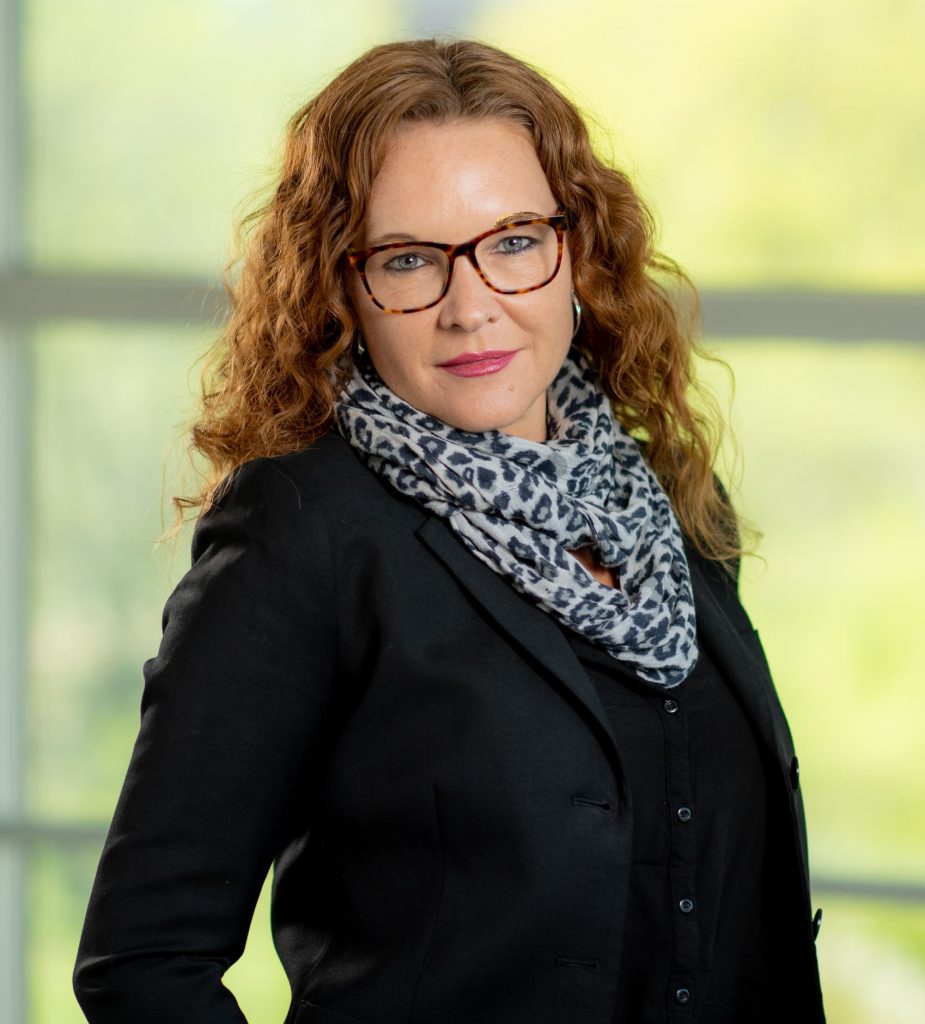
Dr. Molly Magill is an Associate Professor at Brown University School of Public Health, the Director of Biostatistics at the Brown University Center for Alcohol and Addiction Studies, and an adjunct instructor at Boston College School of Social Work. One of Dr. Magill’s specialties has been adult one-to-one or group-delivered therapies based on motivational, cognitive-behavioral, SMART Recovery, and twelve-step approaches. She has generously shared her research findings with the SMART Recovery community. Watch Dr. Magill’s informative 2021 National Conference presentation analysis of new approaches to behavioral change therapies as they relate to addiction and recovery, and how SMART Recovery plays a big part in them here. She was also featured on a SMART Recovery podcast.
PROFESSOR JO NEALE
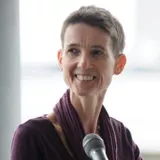
Jo Neale is Professor in Addictions Qualitative Research based within the National Addiction Centre and working across the National Institute for Health Research (NIHR) Maudsley Biomedical Research Centre at the Institute of Psychiatry, Psychology & Neuroscience, King’s College London. As such she has been deeply aligned with UK SMART Recovery for many years, and recently chaired a presentation of SMART Recovery-related research findings at the SMART Global Research Advisory Committee webinar. She has extensive research experience in several addiction-related areas, especially addiction as it relates to homelessness. Jo is also a Senior Qualitative Editor and Commissioning Editor for the international journal Addiction; a member of the editorial board of The International Journal of Drug Policy; and a member of the editorial board of Health Sociology Review. Her spirit of scientific inquiry and altruism is a true inspiration to everyone at SMART.
PATRICIA E. PENN, Ph.D.
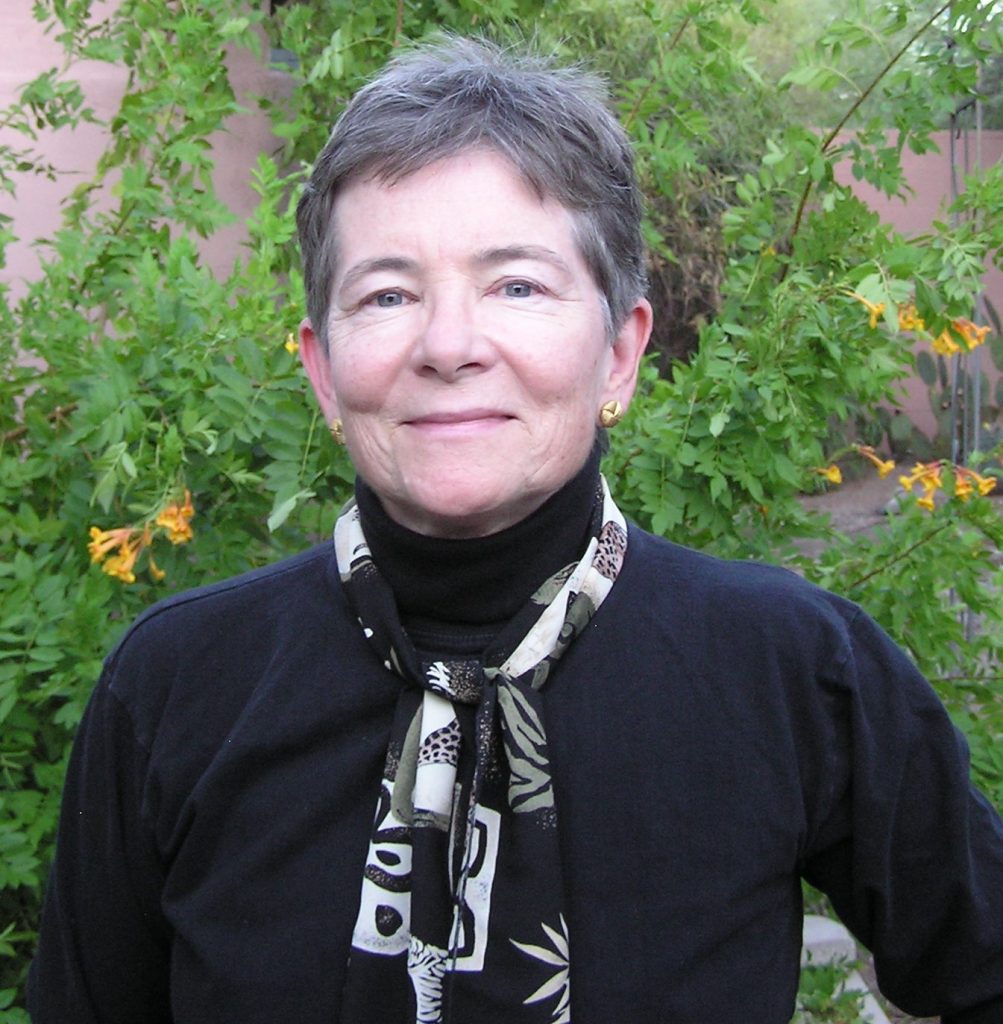
Dr. Patricia Penn has been an Albert Ellis acolyte and loyal SMART Recovery Ambassador for decades, and recently won the 2021 SMART Recovery Science Award at our National Conference in Laurel, Maryland. While most psychologists concentrate in one area of expertise, Dr. Penn has helped patients across a broad spectrum of needs related to not just substance abuse and addiction, including family psychology, group psychotherapy, adult development & aging psychology, and cognitive & behavioral psychology. Her findings have been published in 34peer reviewed scientific journals and she is a pioneer in research about co-occurring conditions (CCs) as well as optimally empathetic and effective addiction treatment options for the LGBTQ Community. Her 2014 articleSMART Recovery®: An effective group method for co-occurring conditions in community treatment published in the Drug & Alcohol Dependence Journal, was an important step in publicly affirming that SMART is “…an effective, versatile group method for co-occurring conditions in community behavioral health treatment settings. It is useful for many types of co-occurring conditions, user friendly, easily trained, feasible, client-centered and cost-effective.”
BILLINA SHAW, M.D.
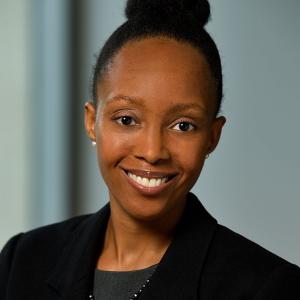
Dr. Billina Shaw is a licensed Psychiatrist and the Medical Director of Mental Health Services within the Behavioral Health Division for the Prince George’s County Health Department. A true polymath, she holds a degree in Psychology from Yale, an MD from the University of Pittsburgh School of Medicine, and a Master of Public Health from Johns Hopkins. Dr. Shaw has been a leading voice in the conversation about racial and ethnic disparities in substance use disorder treatment and care, and recently presented her findings at the 2021 SMART Recovery National Conference. Her findings were especially relevant at a public policy level given the alarming disparity in overdose fatalities between whites and people of color reported in recent years. Dr. Shaw’s work reminds us to view the causes and cures of addiction through as many lenses as possible, including and especially that of systemic racial inequality and stigmatizing language.
MAIA SZALAVITZ
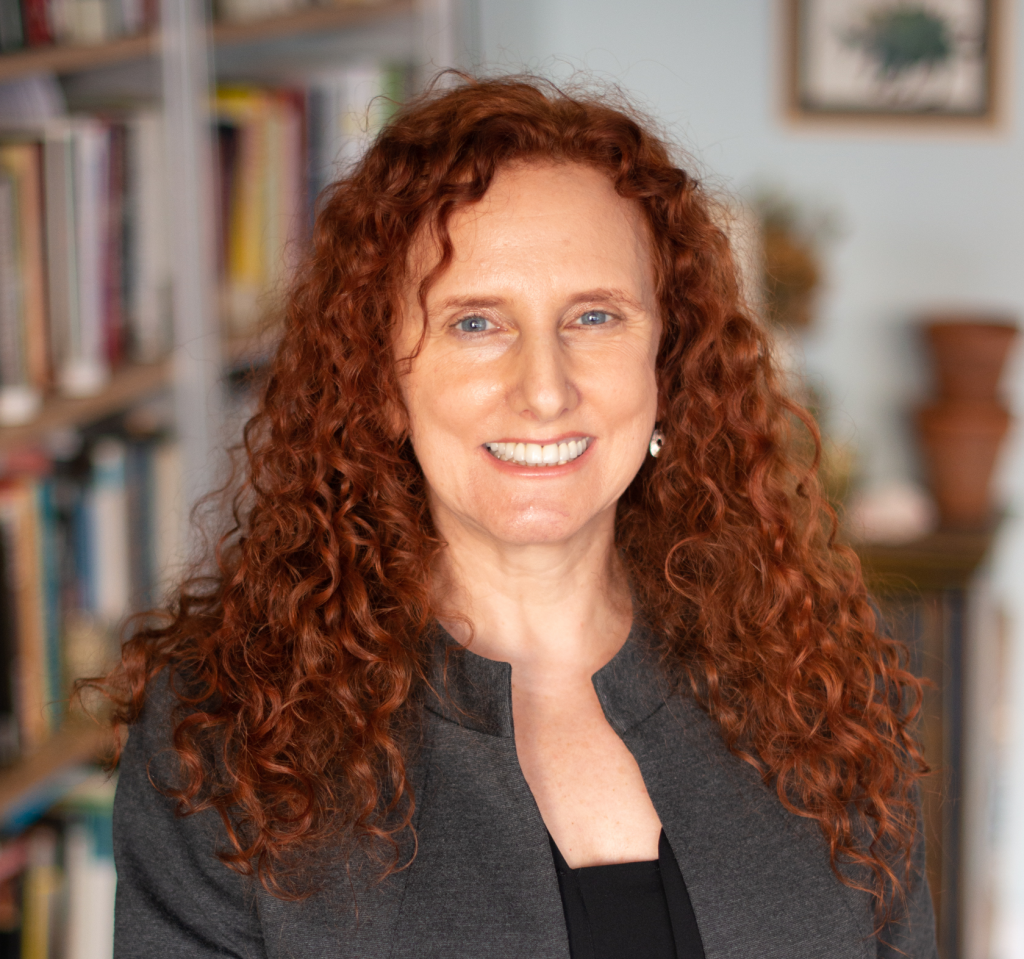
The term “prolific” doesn’t even begin to describe Maia Szalavitz’s voluminous output as an author and public intellectual, especially on the topic of addiction. She has won awards from the National Institute on Drug Abuse, the Drug Policy Alliance, the American Psychological Association, and the American College of Neuropsychopharmacology for her 30 years of groundbreaking writing on addiction, neuroscience, and drug policy. She recently published a powerful op-ed article in the New York Times about efforts in Oregon to decriminalize personal-use drug possession. Maia outspokenly advocates for the increasingly accepted belief that for America to solve its overdose crisis, it must start treating addiction as a medical disorder and stop treating it as a crime. Maia recently presented her latest thoughts on addiction treatment at the 2021 SMART Recovery National Conference in a lively interview with Dr. Tom Horvath. She also just became a contributing opinion writer for the New York Times.
NORA VOLKOW, M.D.

Dr. Nora Volkow has had a significant impact on the addiction science community. She was an early pioneer in the use of brain imaging technologies to study addiction at the neurological level. Her findings, along with those of others, have helped to dispel the myth of addiction as a “moral weakness,” showing instead that addiction is a complex condition at the physiological level. It’s hard to overstate the impact of these efforts. As the current Director of the National Institute on Drug Abuse, she administers substantial funds dedicated to vital addiction science research around the world. More recently, Dr. Volkow published a provocative article in Health Affairs Magazine entitled: “Making Addiction Treatment More Realistic and Pragmatic: The Perfect Should Not Be the Enemy of the Good.” We interviewed SMART Recovery founder and former President Tom Horvath about his reaction to the article, which can be seen on SMART Recovery’s YouTube channel. We are also proud to announce that Dr. Volkow has graciously agreed to participate in SMART Recovery’s upcoming Speakers Series Webinar on April 6, 2022.
KATIE WITKIEWITZ Ph.D.
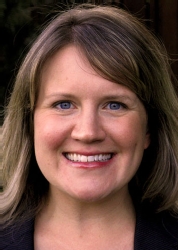
Dr. Katie Witkiewitz is a Regents’ Professor of Psychology at the University of New Mexico. The underlying theme of her research is the development of empirically based models of addiction, with an emphasis on harm reduction, recovery, and applying advanced quantitative research methods to better understand changes in alcohol and drug use behavior over time. Dr. Witkiewitz is also a licensed clinical psychologist and has worked extensively on the development and evaluation of mindfulness-based relapse prevention for addiction. Her research has been supported by grants from the National Institutes of Health, totaling nearly $40 million in research funding since 2004. To date, she has authored 5 books, written over 230 peer-reviewed publications and book chapters, and she has given over 75 presentations and invited talks. She is currently Editor of Psychology of Addictive Behaviors, Field Editor for Alcoholism: Clinical and Experimental Research, and serves on the editorial boards of Substance Use and Misuse, Alcohol and Alcoholism, and Clinical Psychological Science.
SARAH ZEMORE, Ph.D.

Dr. Sarah Zemore is a Senior Scientist at the Alcohol Research Group (ARG), Associate Director of ARG’s NIAAA-funded National Alcohol Research Center, and another amazingly eloquent, humble, and committed SMART Recovery Ambassador who won our 2019 National Conference Science Award for her research advancements in the study of the social aspects of addiction treatment and recovery. Her particular focus of study on the efficacy of mutual support groups, led to a grant from NIAAA for her to study how well SMART Recovery and several other secular programs compared to 12-Steps. Like Dr. Penn’s research finding, her results reaffirmed what many people already learned through actual experience: SMART Recovery can be an effective support system for people seeking freedom from their addictions.
PLEASE NOTE BEFORE YOU COMMENT:
SMART Recovery welcomes comments on our blog posts—we enjoy hearing from you! In the interest of maintaining a respectful and safe community atmosphere, we ask that you adhere to the following guidelines when making or responding to others’ comments, regardless of your point of view. Thank you.
- Be kind in tone and intent.
- Be respectful in how you respond to opinions that are different than your own.
- Be brief and limit your comment to a maximum of 500 words.
- Be careful not to mention specific drug names.
- Be succinct in your descriptions, graphic details are not necessary.
- Be focused on the content of the blog post itself.
If you are interested in addiction recovery support, we encourage you to visit the SMART Recovery website.
IMPORTANT NOTE:
If you or someone you love is in great distress and considering self-harm, please call 911 for immediate help, or reach out to The National Suicide Prevention Hotline @800-273-8255, https://suicidepreventionlifeline.org/
We look forward to you joining the conversation!
*SMART Recovery reserves the right to not publish comments we consider outside our guidelines.*
Subscribe To Our Blog
Join our mailing list to receive the latest news and updates from the SMART Recovery Blog.
You have Successfully Subscribed!
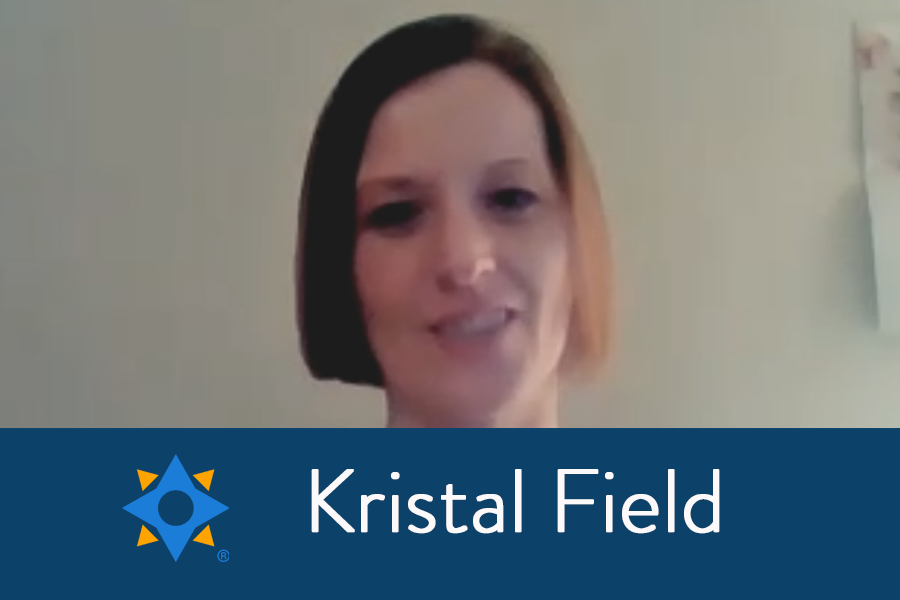
Kristal Field completed the SMART Recovery facilitator training program in 2021 and is now one class away from obtaining her masters in health administration. Facilitating a SMART Recovery meeting every week continues to teach her valuable lessons and allows her the chance to give back and serve her community. She is so grateful to have the support she needs and looks forward to having the opportunity to grow the SMART Recovery network.
Learn more about becoming a SMART volunteer
Find Kristal’s SMART Recovery meeting
Subscribe to the SMART Recovery YouTube Channel
Video storytelling is a powerful tool in recovery, and we are proud to share our SMART Recovery content free-of-charge, available anywhere, on any device. Our videos hope to inform, entertain, and inspire anyone in the recovery community.
Subscribe to our YouTube channel and be notified every time we release a new video.
PLEASE NOTE BEFORE YOU COMMENT:
SMART Recovery welcomes comments on our blog posts—we enjoy hearing from you! In the interest of maintaining a respectful and safe community atmosphere, we ask that you adhere to the following guidelines when making or responding to others’ comments, regardless of your point of view. Thank you.
- Be kind in tone and intent.
- Be respectful in how you respond to opinions that are different than your own.
- Be brief and limit your comment to a maximum of 500 words.
- Be careful not to mention specific drug names.
- Be succinct in your descriptions, graphic details are not necessary.
- Be focused on the content of the blog post itself.
If you are interested in addiction recovery support, we encourage you to visit the SMART Recovery website.
IMPORTANT NOTE:
If you or someone you love is in great distress and considering self-harm, please call 911 for immediate help, or reach out to The National Suicide Prevention Hotline @800-273-8255, https://suicidepreventionlifeline.org/
We look forward to you joining the conversation!
*SMART Recovery reserves the right to not publish comments we consider outside our guidelines.*
Subscribe To Our Blog
Join our mailing list to receive the latest news and updates from the SMART Recovery Blog.
You have Successfully Subscribed!

